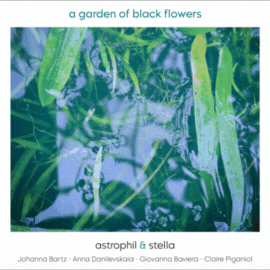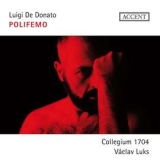So richtig zünden will dieses Arien-Album mit dem italienischen Bass Luigi de Donato nicht. Das ist schade, denn das Programm rückt eine Figur in den Vordergrund, die nur selten im Mittelpunkt steht: Polifemo, der böse Zyklop aus der griechischen Mythologie. Dieser hat einige Komponisten zu an sich großartigen Arien inspiriert. Händel, Domenico Alberti, Johann Georg Schürer, Giovanni Bononcini und Nicola Porpora, sie alle haben verschiedene Aspekte dieser Figur belichtet und Polyphem nicht ausschließlich als Bösen, als Monster dargestellt. In diesem Sinne ist dieses Album hochinteressant und Luigi De Donato wirkt all diesen Charakterisierungen auch mehr oder weniger gerecht.
Allerdings gefallen mir persönlich das Timbre und auch der Gesang De Donatos nicht. Vielleicht liegt das aber auch an der Aufnahmetechnik, die seine Stimme allzu sehr in den Orchesterklang integriert. Für ein Arien-Album, wo man die Figur plastisch vor sich erleben will, ist das nicht der richtige Weg.
Begleitet wird Luigi De Donato vom exzellenten Collegium 1704, einem wunderbar flexiblen tschechischen Ensemble auf historischen Instrumenten, das von Vaclav Luks gekonnt geleitet wird und das seine Klasse auch in reinen Orchesterstücken, der Sinfonia von Antonio Caldera unter Beweis stellen kann.
This aria album with Italian bass Luigi de Donato doesn’t really take off. This is a pity, because the program focuses on a character who is rarely the center of attention: Polifemo, the evil cyclops from Greek mythology. He inspired a number of composers to write great arias. Handel, Domenico Alberti, Johann Georg Schürer, Giovanni Bononcini and Nicola Porpora have all shed light on different aspects of this character and have not only portrayed Polyphemus as evil, as a monster. In this sense, this album is very interesting and Luigi De Donato more or less does justice to all these characterizations.
However, I personally don’t like De Donato’s timbre and singing. Maybe this is due to the recording technique, which integrates his voice too much into the orchestral sound. This is not the right approach for an aria album where you want to experience the character vividly.
Luigi De Donato is accompanied by the excellent Collegium 1704, a wonderfully flexible Czech ensemble on period instruments, skillfully conducted by Vaclav Luks, which can also demonstrate its class in purely orchestral pieces, the Sinfonia by Antonio Caldera.

























